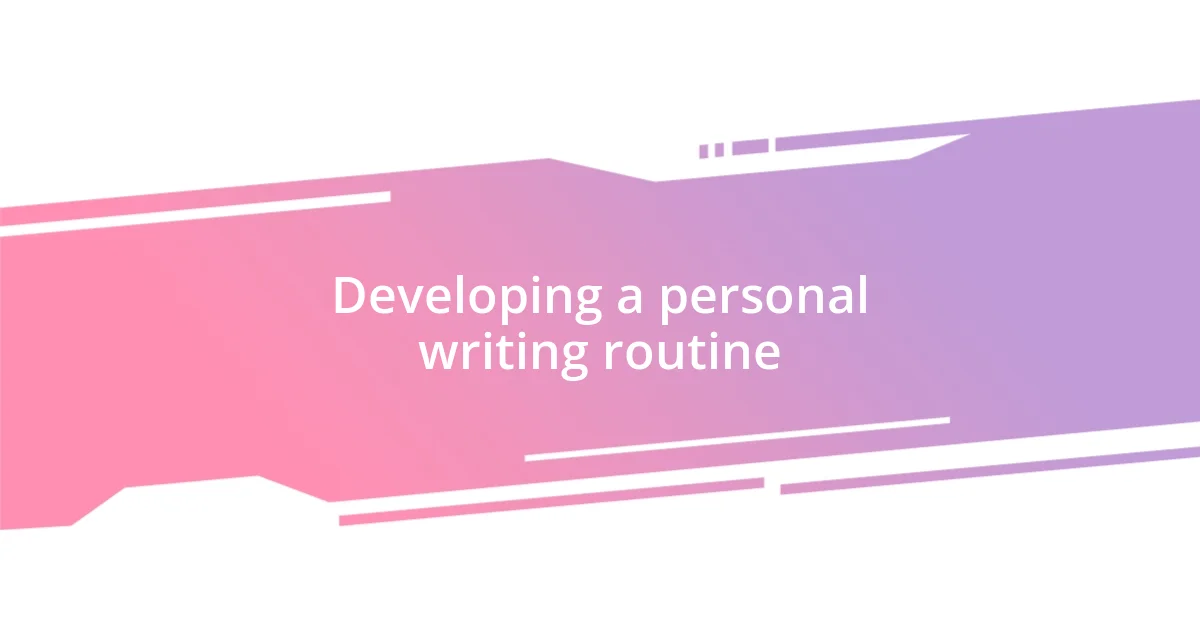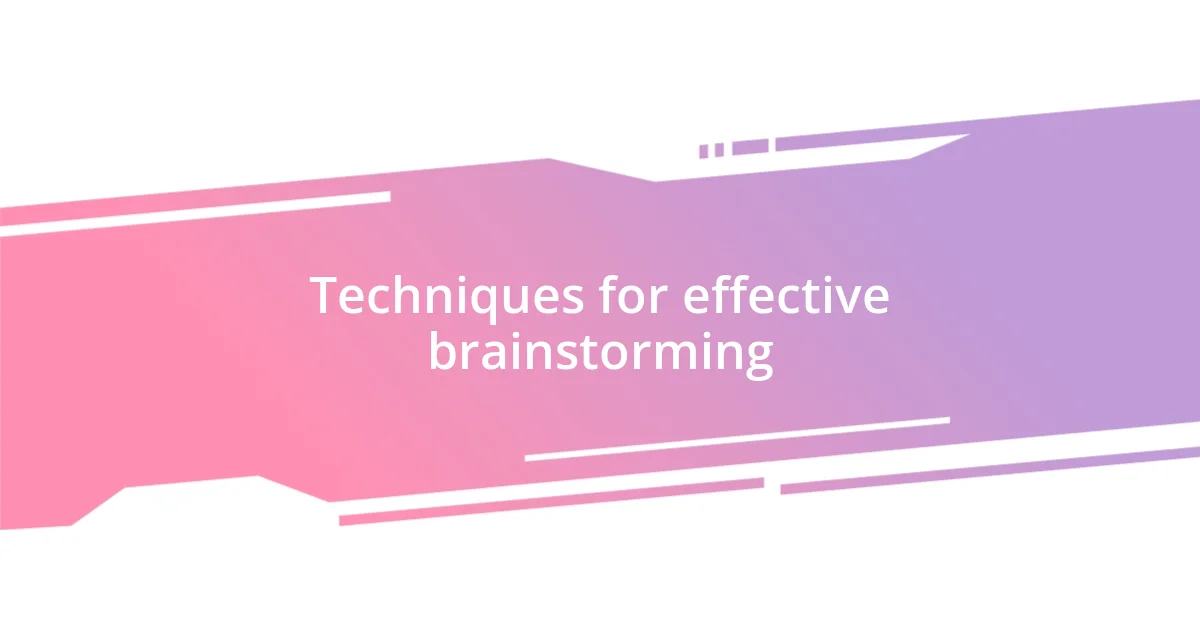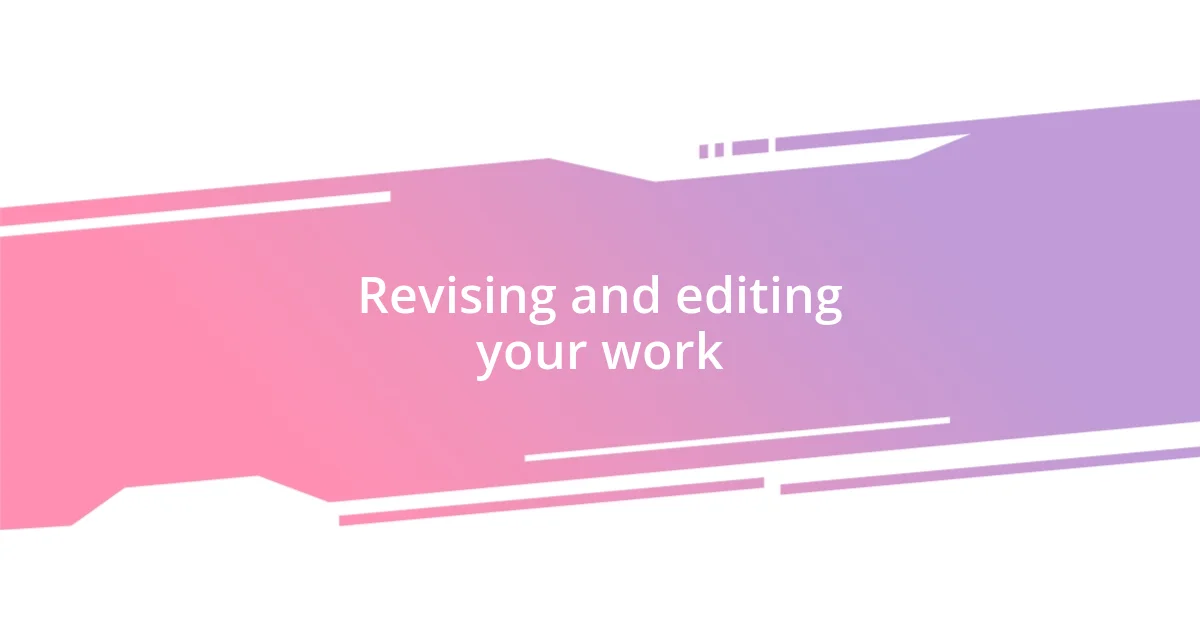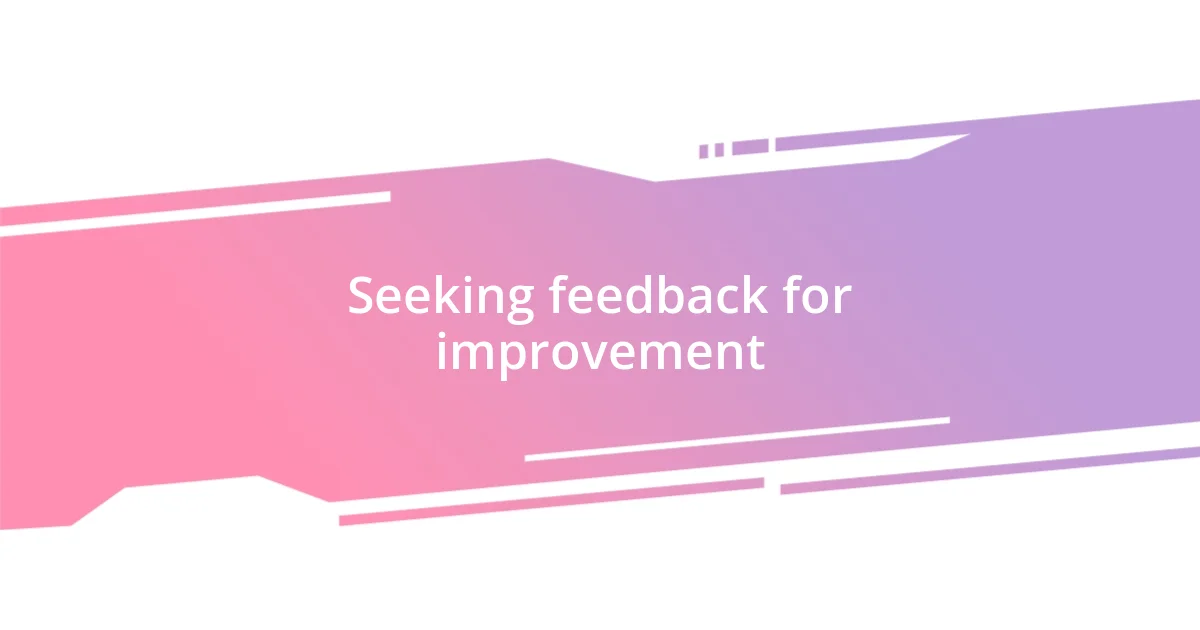Key takeaways:
- Effective composition requires a clear structure, balance between showing and telling, and simplicity in language to foster connection with readers.
- Finding your unique voice involves writing freely, reflecting on personal experiences, and experimenting with tone, while also seeking constructive feedback.
- Building a consistent writing routine includes setting aside dedicated time for writing, creating a conducive environment, and tracking progress for motivation.

Understanding Composition Basics
Composition basics revolve around the fundamental elements that create a compelling piece of writing. For instance, I remember the first time I grasped the importance of structure; I had a professor who emphasized that every good composition starts with a clear outline. That revelation was a game changer for me—how could I expect my thoughts to flow if they weren’t organized?
I often find that understanding the balance between showing and telling can elevate a composition significantly. There’s an emotional depth you evoke when you let readers infer meaning through vivid imagery rather than simply stating facts. Have you ever felt a story resonate with you more deeply because of how it was described rather than what was said outright? That’s the power of engaging your audience’s senses.
Moreover, I’ve learned that simplicity in language can sometimes create the most profound impact. Early in my writing journey, I was tempted to use elaborate words, thinking they’d impress my readers. Instead, I found that straightforward language fostered a genuine connection. Have you experienced a moment when clarity made your message shine brighter? That’s the essence of effective composition.

Finding Your Unique Voice
Finding your unique voice in writing is a journey that requires introspection and practice. I remember sitting at my desk, staring blankly at a page, trying to sound like my favorite authors. It didn’t take long for me to realize that mimicking others only left me feeling lost. When I finally embraced my quirks and imperfections, my writing blossomed into something authentic and true to myself. There’s an exhilarating freedom in expressing your individuality through words, allowing your readers to connect with who you truly are.
Here are some strategies to help you uncover your voice:
- Write Freely: Set a timer for ten minutes and let your thoughts flow without worry about grammar or structure. This can reveal your natural style.
- Read Widely: Explore different genres and authors. Notice what resonates with you and what doesn’t—it can guide you towards your unique preferences.
- Reflect on Your Experiences: Think about moments in your life that have shaped you. Sharing personal anecdotes adds depth and authenticity to your writing.
- Experiment with Tone: Try writing the same piece in various tonalities—humorous, serious, or conversational—to see what feels most like you.
- Seek Feedback: Share your work with trusted friends or writers. They can provide insights that help you identify the aspects of your voice that shine through.
Finding your voice may take time, but I assure you, it’s worth every moment invested.

Techniques for Effective Revision
When it comes to effective revision, I have found that stepping away from your work momentarily can do wonders. After immersing myself in a piece, I often need to clear my mind. This pause allows me to return with fresh eyes, enabling me to spot inconsistencies or areas that lack clarity. Have you ever had that “aha” moment when reviewing your writing after a break? It’s truly incredible how a little distance can shift your perspective.
Another technique I cherish is reading my work aloud. This method not only helps me catch awkward phrasing but also allows me to hear the rhythm of my writing. I recall a time when I was struggling with a paragraph’s flow; it wasn’t until I articulated it out loud that I recognized the clunky spots. There’s something about hearing your own voice that brings new insights to light. Have you tried this approach? I highly recommend giving it a shot.
Tracking changes and creating a checklist are additional strategies that can bolster your revision process. Whenever I revise a piece, I jot down specific aspects I want to pay attention to—like transitions, word choice, or tone. This checklist keeps me focused and helps ensure I don’t overlook critical areas that need refinement. It turns an overwhelming task into manageable steps, making the revision process more approachable.
| Technique | Description |
|---|---|
| Stepping Away | Taking a break from your work to gain fresh perspective upon revisiting. |
| Reading Aloud | Articulating your writing out loud to catch awkward phrases and improve rhythm. |
| Checklists | Creating a checklist to focus on specific elements in your writing during revision. |

Tools for Enhancing Creativity
When it comes to tools for enhancing creativity, I often turn to mind mapping. This technique allows my thoughts to flow in a non-linear way, which works wonders for sparking new ideas. I once faced writer’s block while trying to develop a story; it wasn’t until I sprawled out my ideas on paper visually that I began to see connections I hadn’t noticed before. Have you ever experienced that moment where everything just clicks into place? Mind mapping can provide that clarity.
Another invaluable tool I cherish is journaling. I find that maintaining a daily journal helps me process my thoughts and feelings, unlocking levels of creativity I didn’t realize existed. There are times when I sit down, feeling uninspired, but as soon as I start writing about my day or any random thought, ideas begin to flow freely. It’s almost like my pen has a mind of its own! Have you tried jotting down your thoughts? It can be a delightful surprise to uncover unexpected sparks of inspiration.
Collaging, too, has become a recent favorite of mine. I love gathering images, quotes, and snippets that resonate with my ideas to create a visual representation of my thoughts. There was a specific project where I felt lost in words, but building a collage brought my themes to life in such a tangible way. I realized that creativity isn’t confined to just writing—it can be expressed through various media. Have you ever thought about using visuals to fuel your writing? It’s a refreshing way to break the norm and invigorate your creative process.

Strategies for Overcoming Writer’s Block
Sometimes, when writer’s block hits, I find that changing my environment can work wonders. I remember sitting at my desk, staring blankly at the screen, feeling utterly stuck. On a whim, I decided to take my notebook to a nearby café. The buzz of conversation and the aroma of coffee somehow sparked my creativity, and before I knew it, ideas were flowing like a river! Have you ever tried relocating while writing? It can really shift your mindset.
Another approach I’ve found effective is setting a timer for short bursts of writing, often called the Pomodoro Technique. I used to dread sitting down to write, fearing I wouldn’t produce anything worthwhile. Now, I challenge myself to write for just 15 minutes without judgment—no editing, just letting the words spill out. It’s liberating! Often, those fleeting moments turn into some of my best writing. Have you allowed yourself that freedom yet?
Lastly, engaging in physical activity can also help me break free from writer’s block. There have been times when I felt mentally exhausted after hours of staring at my laptop. A brisk walk or even doing a quick workout gets my blood pumping and clears my mind. I often return refreshed, ready to tackle my writing with renewed energy. What about you? Do you notice a difference when you take a physical break? It’s incredible how moving your body can unlock your thoughts!

Incorporating Feedback into Your Work
When I receive feedback on my work, I try to approach it with an open mind. I remember a time when a critique from a peer rattled me; it felt personal at first. But as I revisited their comments, I began to see not just errors, but opportunities for growth. Have you ever mirrored that experience? It’s remarkable how humility in accepting feedback can transform your writing.
In my career, I’ve learned that not all feedback is created equal. While some opinions resonate—like when my mentor suggested I vary my sentence structure to enhance rhythm—I’ve also encountered critiques that didn’t align with my vision. I always remind myself that the ultimate decision lies with me, and sifting through feedback helps refine my voice. Isn’t it refreshing to know you can take what serves you and leave the rest behind?
Integrating feedback can feel daunting, but I often break it down into actionable steps. For instance, after a workshop where I shared my writing, I compiled a list of common suggestions. Taking this approach helped me focus on specific areas rather than feeling overwhelmed by the general feedback. It’s like building a toolbox—each suggestion is a tool I can wield to improve my craft. Have you ever considered feedback as a tool rather than a hurdle? Embracing this perspective can truly empower your writing process.

Building a Consistent Writing Routine
When it comes to building a consistent writing routine, I’ve found that starting my day with a dedicated writing block truly sets the tone. Each morning, I carve out two hours just for writing, a commitment that feels like a promise to myself. Have you noticed how the stillness of early mornings can foster creativity? It’s as if the world is still asleep, giving me permission to let my thoughts flow freely without distractions.
I also believe the environment plays a crucial role in maintaining that consistency. For example, I’ve designated a small nook in my home where I keep all my writing supplies—my notebooks, pens, and a vision board. The moment I step into that space, my brain flips a switch, signaling that it’s time to write. Have you created a special area just for your writing? I can’t stress enough how much of a difference it makes to have a physical space that encourages focus and creativity.
Lastly, I’ve learned that tracking my progress adds an extra layer of motivation. I use a simple calendar to mark off each successful writing day, and I can’t help but feel a rush of satisfaction as the days build up into a streak. It’s something visually rewarding that keeps me accountable. Have you ever considered how small achievements can dramatically shift your motivation levels? That sense of accomplishment not only fuels my desire to write more but also helps me remain committed to my routine in the long run.












